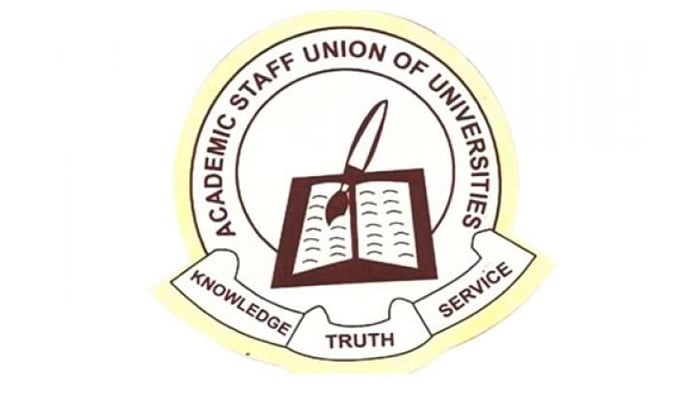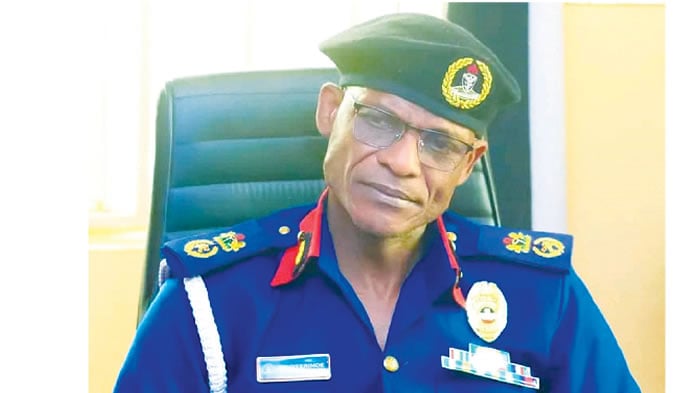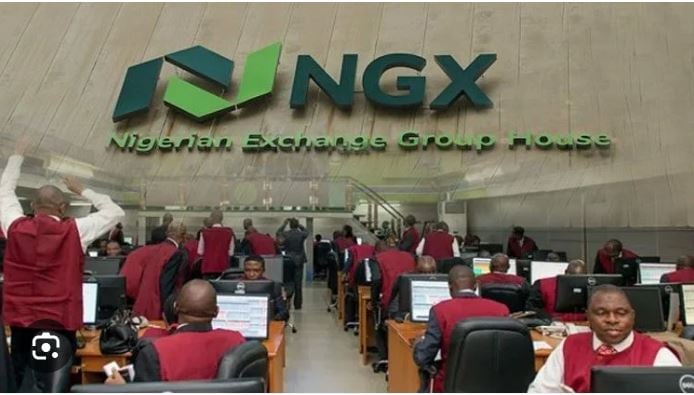 Academic activities were grounded across various public universities nationwide on Monday as the Academic Staff Union of Universities began its two-week warning strike to press home its demands.
Academic activities were grounded across various public universities nationwide on Monday as the Academic Staff Union of Universities began its two-week warning strike to press home its demands.
The renewed standoff between ASUU and the Federal Government was sequel to the breakdown of talks between both parties.
The strike was declared by the National President of ASUU, Prof. Chris Piwuna, in Abuja on Sunday.
This is even as the Federal Government mandated the National Universities Commission to submit the attendance list of all lecturers across public universities in seven days’ time.
But the Nigeria Labour Congress expressed solidarity for the union while berating the Minister of Education, Tunji Alausa, over the move to implement the no-work-no-pay policy.
The NLC president, Joe Ajaero, described the policy as an act of intimidation which he said would not resolve the crisis in the nation’s public tertiary institutions.
Alausa had claimed that the government had entered the final phase of talks with ASUU and other unions to resolve the lingering disputes over welfare, funding, and the implementation of the 2009 ASUU-FGN Agreement.
He said the Tinubu administration had already made significant progress with the release of N50bn for the payment of Earned Academic Allowances, while another N150bn had been captured in the 2025 budget for needs assessment, to be disbursed in three tranches.
Following the strike action by ASUU, Alausa in a circular on Monday directed the National Universities Commission and vice chancellors to enforce the ‘no work, no pay’ policy.
In line with the provisions of the labour laws of the federation, the Federal Government reiterated its position on the enforcement of the ‘No work, no pay’ policy in respect of any employee who fails to discharge his or her official duties during the period of strike action,” the circular reads.
The minister directed all vice-chancellors of federal universities to immediately conduct a roll call and physical headcount of all academic staff in their institutions.
He also instructed them to submit a comprehensive report indicating staff members who are present and performing their official duties, and those absent or participating in the strike.
Alausa further directed that salary payment for the period of work stoppage be withheld from those who fail to perform their duties.
He clarified that members of the Congress of University Academics and the National Association of Medical and Dental Academics, who are not part of the strike, are exempted from the directive and will not face any salary deductions.
The minister also tasked the NUC to monitor compliance with the directive and submit a consolidated report to the ministry within seven days of receiving the circular.
“The National Universities Commission will monitor compliance with this directive and submit a consolidated report to the Ministry within seven days of receipt of this circular.
“Please, treat this matter with utmost urgency and a deep sense of responsibility in national interest,” Alausa urged the university heads.
Reacting to the development, ASUU president, Piwuna, a consultant psychiatrist, noted that the union does not respond to threats.
A visibly angry Piwuna, who appeared on Channels Television ‘Politics Today’ on Monday, also cautioned the minister against “divide and rule” tactics
“We do not respond to threats. Nobody can threaten us. We see ourselves as victims of this government the way students see themselves as victims of what is going on. ASUU is willing, we are ready, we are available to discuss this matter once and for all.”
Meanwhile, the NLC president warned Alausa against the implementation of the ‘no work, no pay policy.’
Ajaero also noted that the NLC would be forced to take action should the minister fail to meet the demands of ASUU by the end of the two-week warning strike.
“If, after the two-week warning strike, the government remains unresponsive, the NLC will not stand idly by. The NLC will convene an emergency meeting with its affiliates in the tertiary education sector to develop a comprehensive strategy for further engagement with the government.
“The struggle of ASUU is the struggle of the Nigerian working class. The fight for public education is a fight for Nigeria’s future. The NLC will no longer allow these unions to stand alone.
“We demand that the Federal Government use this two-week window to present a concrete plan for the full implementation of all agreements.
“The choice is clear: honour the agreements and salvage public education, or face the resolute and unified force of the entire Nigerian workforce.”
In the aftermath of the strike, academic activities were grounded across various public universities nationwide.
The ASUU-Ahmadu Bello University branch chairman, Haruna Jibril, confirmed the compliance shortly after a congress held at the university’s main campus in Samaru, Zaria, saying the decision reflected the collective resolve of the academic staff to press home their long-standing demands.
“We have complied 100 per cent with the directive from our national body. Although this is the first day of the strike, we are optimistic that the level of compliance will remain total throughout the two-week period,” Jibril told journalists after the congress.
He said the union had no option but to join the nationwide warning strike in solidarity with the national body, noting that the government’s failure to meet the union’s demands had made continued patience untenable.
“Our members have remained steadfast and resilient despite years of neglect by successive governments. This strike is not for personal gain; it is about the future of our universities and the welfare of both staff and students,” Jibril said
At both the Samaru and Kongo campuses of the institution, the usual buzz of academic life was replaced by clusters of students discussing the development.
At the Faculty of Education, lecture rooms were deserted, and students sat idly in groups. A few lecturers were spotted around the faculty premises, but none entered classrooms to teach.
“This is unlike a normal Monday,” a final-year student, Shafiqah Abdullahi, told The PUNCH.
“We have not had any lectures today. The lecturers were all around, but none of them entered the class for lectures. This development will not augur well for us, especially those of us in our final year. I believe we are the ones who will suffer more if the strike continues.”
At the Faculty of Social Sciences, The PUNCH observed some students who had just written a test, while others expressed uncertainty about upcoming academic activities.
Hassan Kugu, a student of Library and Information Studies, said his department managed to hold a test in the morning before the strike fully took effect.
“Maybe it’s because it was still the first day. We were able to write a test this morning, and we were expecting to write another tomorrow. But I think we were allowed because most of the ASUU members were still holding their meeting when we wrote. Tomorrow’s test may not hold since the congress has declared total compliance,” he explained.
Reacting to the Federal Government’s “No work, no pay” policy, Jibril said members of the union were not intimidated by such pronouncements, describing them as familiar tactics that would not derail their struggle.
“We take the government’s threat seriously, but we are not rattled by it,” he said. We’ve been through this before. During the last major strike, we went for eight months without salaries, yet our members stood their ground. Some of our colleagues have been without pay for over 30 months because of issues related to the Integrated Payroll and Personnel Information System. Even the existing salaries are often insufficient to meet basic needs.”
Similarly, academic activities were halted at the Usmanu Danfodiyo University, Sokoto , as the institution’s chapter of ASUU joined the industrial action.
The UDUS ASUU Chairman, Professor Nurudeen Muhammad, confirmed the development in an interview, saying members commenced the strike action at midnight in line with the directive from the union’s national headquarters.
“We have joined the strike since midnight today, according to the national directive,” Muhammad stated.
“Until we receive instructions to the contrary, our members will continue to fully observe the two-week warning strike,” he added.
Also, the universities in Ondo State on Monday joined the nationwide strike. At the Adekunle Ajasin University Akungba Akoko, it was gathered that there were no academic activities. Students were seen roaming about the campus while their lecture rooms were open but no lectures took place.
Before the national strike, the AAUA lecturers were already on an indefinite strike following a face-off with the state government over the issues of salaries and allowances.
Commenting on the development, the Chairman of ASUU in the institution, Prof. Bolu Oshodi, said his members complied with the directives from the national leadership of the union.
“You know before now, we have been on the local strike, so it’s a case of double strike for us now and I want to emphatically state this, that even, if the national issue is eventually resolved, if our own local issues are not resolved, we shall not resume,” he vowed.
The immediate past Chairman of ASUU at the Olusegun Agagu University of Science and Technology, Okitipupa, Prof Olorunsola Rotimi, said, “So, every one of us has joined the strike throughout the federation. There was a resolution by NEC of ASUU. So, we have given the government a 14 -day notice, which is required by the labour law.”
Lecturers at the Joseph Sarwuan Tarka University Makurdi, formerly known as Federal University of Agriculture also withdrew their services.
The ASUU Chairman at the university, Dr Terseer Abari, told journalists that the chapter had complied with the directive. Abari said, “We have complied with the national directive. So, we are on strike as we speak.”
The warning strike disrupted the examination in the institution. Abari, however, said that the majority of the students had concluded their exams but added that those still writing exams would have to take their papers after the strike.
He said, “A good number of our students are done with their exams except those in the Veterinary College who are left with one or two papers. But as we proceed on the strike, every other thing will seize. When we come back, they will round it off; 95 percent of our students are done with their exams. If you go to our campus, you will not see anybody except those doing their projects. So, these ones will go home and come back after the strike.’’
Students were seen at the Fr. Moses Adasu University, Makurdi, formerly Benue State University, but no lecture was going on.
Academic and social activities were equally paralysed at the University of Uyo. Our correspondent, who visited the two campuses of the University of Uyo, reports that no lectures were held on Monday as the classrooms were empty. Lecturers and students were seen standing in clusters discussing the strike.
The Branch Chairman of ASUU, Prof Olajide Opeyemi, confirmed the labour action, saying, ‘’The strike has officially kicked off through our procedures and Congress resolutions. It was a directive from the national body of our union.’’
A similar situation was observed at the University of Ibadan where the lecturers complied with the ASUU directive. The Branch Chairman, Adefemi Afolabi, said academic activity at the university is on hold for now.
“There is compliance with the directives of the national secretariat of the union. The warning strike commenced Sunday midnight and it will be on until there is a counter-directive from the union. We are moving round the faculties and department ensuring total compliance with the directives. There are no academic and other related activities on the campus,” he stated.
Lecturers at the Nnamdi Azikiwe University, Awka, were not available when our correspondent visited the campus on Monday. The Chairman, ASUU Owerri Zone, Prof Dennis Aribodor, urged the Federal Government to do the right thing.
‘’The Federal Government must demonstrate its fatherly role by fulfilling its promises instead of threatening actions. We’re ready to spend 10 years until the government does the needful,” he said.
There was full compliance with the strike directive by the University of Jos lecturers. Our correspondent, who visited the Bauchi Road campus on Monday afternoon, observed that most of the lecturers stayed away from campus leaving students who came for lectures stranded.
In an interview with The PUNCH in Jos, the Chairman of the ASUU branch at UNIJOS, Prof. Jurbe Molwus, confirmed that the lecturers were complying one hundred percent with the warning strike.
“We are complying one hundred percent with the warning strike at UNIJOS,” Molwus said.
Subscribe to Nigerian opinion columns
“The Federal Government has been threatening us with ‘no work no pay,’ but we are not going to back down; we are not afraid. We will continue to comply until our demands are met by the government.”
The situation was the same at the Plateau State University in Bokkos as confirmed by the ASUU Branch Chairman, Dr Monday Hassan.
The Branch Chairman, ASUU, Tai Solarin Federal University of Education, Ijagun, Dr Adewale Ositoye and his counterpart at the Federal University of Agriculture, Abeokuta, Dr Ola Oyedele and an official of Olabisi Onabanjo University, Ago Iwoye, confirmed that the three universities joined the national strike.
Ositoye said that his colleagues at TASUED have stayed away from the lecture rooms pending the expiration of the 14-day warning strike.
 The Department of State Services, DSS, in Delta State has intercepted a cache of sophisticated weapons in Asaba, the state capital. The operation, which took place on October 12, 2025, within the Asaba metropolis, led to the arrest of a notorious arms dealer, identified as Stephen Sabo Atoshi, and his accomplice, a 40-year-old secondary school teacher from Taraba State.
The Department of State Services, DSS, in Delta State has intercepted a cache of sophisticated weapons in Asaba, the state capital. The operation, which took place on October 12, 2025, within the Asaba metropolis, led to the arrest of a notorious arms dealer, identified as Stephen Sabo Atoshi, and his accomplice, a 40-year-old secondary school teacher from Taraba State.


 The Nigerian Civil Aviation Authority, NCAA, has warned domestic airlines against arbitrarily extending the refund period for cancelled or unused tickets to four weeks.
The Nigerian Civil Aviation Authority, NCAA, has warned domestic airlines against arbitrarily extending the refund period for cancelled or unused tickets to four weeks.
 In a renewed effort to address rising insecurity and political disunity in Kwara South, key political figures, traditional leaders, and youth representatives under the aegis of Kwara South G7 converged on Omu-Aran, Irepodun Local Government Area, on Sunday for a Political Hangout aimed at fostering unity and good governance across the district.
In a renewed effort to address rising insecurity and political disunity in Kwara South, key political figures, traditional leaders, and youth representatives under the aegis of Kwara South G7 converged on Omu-Aran, Irepodun Local Government Area, on Sunday for a Political Hangout aimed at fostering unity and good governance across the district.
 Academic activities were grounded across various public universities nationwide on Monday as the Academic Staff Union of Universities began its two-week warning strike to press home its demands.
Academic activities were grounded across various public universities nationwide on Monday as the Academic Staff Union of Universities began its two-week warning strike to press home its demands.
 The Bauchi State Command of the Nigeria Security and Civil Defence Corps has arrested two suspects for their alleged involvement in cable vandalism and theft within the state.
The Bauchi State Command of the Nigeria Security and Civil Defence Corps has arrested two suspects for their alleged involvement in cable vandalism and theft within the state.
 The Nigerian Exchange Limited opened the week on a positive note, gaining N465bn in market capitalisation on Monday as investors increased their interest in insurance and industrial stocks.
The Nigerian Exchange Limited opened the week on a positive note, gaining N465bn in market capitalisation on Monday as investors increased their interest in insurance and industrial stocks.
 Nigeria’s crude oil production shrank to 1.39 million barrels per day in September 2025, marking the second consecutive month of reduced output.
Nigeria’s crude oil production shrank to 1.39 million barrels per day in September 2025, marking the second consecutive month of reduced output.
 The Nigerian Upstream Petroleum Regulatory Commission has disclosed that the Host Community Development Trust fund has risen to N373bn as of October 13, 2025, with 536 community development projects currently ongoing across oil-producing areas in the country.
The Nigerian Upstream Petroleum Regulatory Commission has disclosed that the Host Community Development Trust fund has risen to N373bn as of October 13, 2025, with 536 community development projects currently ongoing across oil-producing areas in the country.
 The Organisation of the Petroleum Exporting Countries has retained its global oil demand and supply forecasts for 2025, according to its Monthly Oil Market Report released on Monday.
The Organisation of the Petroleum Exporting Countries has retained its global oil demand and supply forecasts for 2025, according to its Monthly Oil Market Report released on Monday.
 Transcorp Power Plc, one of the power subsidiaries of conglomerate Transnational Corporation Plc, has recorded N91.2bn in profit before tax for the period ended 30 September 2025.
Transcorp Power Plc, one of the power subsidiaries of conglomerate Transnational Corporation Plc, has recorded N91.2bn in profit before tax for the period ended 30 September 2025.